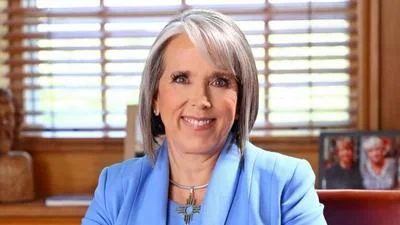At least eight organizations have filed appeals against the Dawn Legacy Point Safe Outdoor Spaces homeless tent encampment, asking the Albuquerque City Planning Department to reverse its decision and deny the Safe Outdoor Space application of Dawn Legacy for 1250 Menaul Blvd. NE.
This comes after the Planning Department unilaterally reviewed the application in private a few months ago with no notice to surrounding businesses or neighborhood associations, no public hearing and no public input, critics charge.
Karl Holme, executive director of Greater Albuquerque Hotel & Lodging Association, expressed support of the appeals in a Dec. 5 letter to Jeff Palmer of the Planning Department.
“Our association is in support of the appellants against the 1250 Menaul NE Safe Outdoor Space, Dawn Legacy application process in its current form, and in the rush to get things moving, it seems haphazard, as there are few concrete details presented to the public to appropriately allay their fears and concerns,” Holme said in the letter.
Holme stressed that Albuquerque’s Safe Outdoor Space program has not been properly planned and will fail without a legitimate outline. If Albuquerque expands Safe Outdoor Spaces across several locations, he said, the city must meet the needs and demands of the community, which includes having a well-thought-out template with built-in benchmarks and standards for which all third party contractors must meet.
It also needs an actual game plan to mitigate issues in the neighboring community, which currently does not exist, Holme said.
“GAHLA is very empathetic and supportive of the city of Albuquerque's efforts to grapple with the challenges associated with homelessness along with the attendant substance abuse and/or behavioral issues,” Holme told New Mexico Sun. “It’s not only a human tragedy but drives crime, drives away tourism business and is a threat to hotel guests. Having a homeless encampment at the crossroads of Interstate 40 and Interstate 25 creates a negative image from a tourism perspective, as it can become an eyesore.
“Both state and federal dollars were spent a few years back to beautify and raise the appeal of this interchange and to promote Albuquerque to those traversing the area,” he added. “In addition we believe there is a Menaul sector plan to enhance the area of which this SOS encampment does nothing to advance.”
Holme said the appeals are well-founded and are supported by his association.
“GAHLA has initially appealed on behalf of the two neighboring hotels, as we have over 1,000 hotel rooms in the area," he said. "The Crowne Plaza has lost two conventions due to the homelessness issue.”
Holme said the fact that the proper notification was not followed with neighboring properties/businesses not being notified also is reason for concern by area residents and firms.
“The appellants believe the city is not listening to their concerns,” he said. “There is already a crime issue in the area.”
In recent letter to Councilor Trudy Jones, Bob Reule of the Menaul Business Coalition said there are better options to assist people.
“There are currently more humane and effective solutions to sheltering the homeless than shuttling battered women to comingle with men in outdoor tent camps, in sub-freezing temps, with outdoor wash stations and porta-potties, when the City Housing 1st program provides comfortable, indoor brick and mortar accommodations,” Reuele wrote.
Holme said Reule raised salient points.
“Bob Reule’s email contained research from Lindsay Gilbert, president and head of Menaul school, sharing articles about other cities having tried similar programs and are now reversing course or making huge adjustments due to failures,” he told New Mexico Sun.
“All this giving ample reasons to slow the process down," he added. "Given that tent camps are not a panacea, what best practices has CABQ undertaken to improve their program? We as a community should learn from the mistakes of other municipalities in this regard.”
The city of Albuquerque has made many investments for the homeless that are seemingly underused. It funded more than $59 million to Family & Community Services in fiscal year 2022 to help care for 1,311 homeless individuals, as identified by the HUD Point in Time Survey, and spent $15 million to purchase the Gibson Medical Center for a shelter.
“We continually hear the mantra that we have to do something," Reule wrote. "But SOSs are not the proper solution for the homeless occupants, when the city has made the investment to properly house, properly secure, feed, medically treat, council and care for the homeless in an environment that is nurturing and not in conflict with the viability of our fragile business communities and neighborhoods.”
Tent camps have been attempted and repealed in municipalities nationwide and have failed. Other cities that have tried the Safe Outdoor Spaces model, including Seattle, Portland, Oregon, and Denver, have found it to be ineffective, economically destructive and in many cases life-threatening.
Holme said it’s natural to have concerns since Albuquerque is modeling its homeless policies based on efforts other cities made that have not been successful. The lack of hard specifics shared with the public provides little confidence, he said.
“We also have concerns about the security plan and that outside of the defined area will be affected additionally,” Holme said.
He offered a few steps to reduce the worries of locals as this process continues. These include improving the notification process, providing more communication on specifics and, perhaps, hold a group meeting to share information and discuss details. He also suggested presenting a thorough plan on what third parties will be contracted and how they will manage the program.




